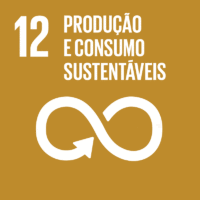Ciência_Iscte
Publicações
Descrição Detalhada da Publicação
Título Revista
Journal of Marketing
Ano (publicação definitiva)
2019
Língua
Inglês
País
Estados Unidos da América
Mais Informação
Web of Science®
Scopus
Google Scholar
Esta publicação não está indexada no Overton
Abstract/Resumo
Marketers strive to create cool brands, but the literature does not offer a blueprint for what brand
coolness means or what features characterize cool brands. This research uses a mixed-methods
approach to conceptualize brand coolness and identify a set of characteristics typically associated
with cool brands. Focus groups, depth interviews, and an essay study indicate that cool brands
are perceived to be extraordinary, aesthetically appealing, energetic, high status, rebellious,
original, authentic, subcultural, iconic, and popular. Nine quantitative studies (surveys and
experiments) develop scale items to reliably measure the component characteristics of brand
coolness, show that brand coolness influences important outcome variables, including
consumers’ attitudes towards, satisfaction with, intentions to talk about, and willingness-to-pay
for the brand, and demonstrate how cool brands change over time. At first, most brands become
cool to a small niche, at which point they are perceived to be more subcultural, rebellious,
authentic, and original. Over time, some cool brands become adopted by the masses, at which
point they are perceived to be more popular and iconic.
Agradecimentos/Acknowledgements
--
Palavras-chave
Attitudes,Authenticity,Brands,Coolness,Niche,Scale development,Structural equation modeling
Classificação Fields of Science and Technology
- Economia e Gestão - Ciências Sociais
Registos de financiamentos
| Referência de financiamento | Entidade Financiadora |
|---|---|
| UID/GES/00315/2019 | Fundação para a Ciência e a Tecnologia |
Contribuições para os Objetivos do Desenvolvimento Sustentável das Nações Unidas
Com o objetivo de aumentar a investigação direcionada para o cumprimento dos Objetivos do Desenvolvimento Sustentável para 2030 das Nações Unidas, é disponibilizada no Ciência_Iscte a possibilidade de associação, quando aplicável, dos artigos científicos aos Objetivos do Desenvolvimento Sustentável. Estes são os Objetivos do Desenvolvimento Sustentável identificados pelo(s) autor(es) para esta publicação. Para uma informação detalhada dos Objetivos do Desenvolvimento Sustentável, clique aqui.

 English
English


